5 Tips for Landlords
 As an attorney that has handled many landlord/tenant issues throughout the years, I am often asked for advice by people that are considering purchasing investment rental properties. There are certain duties established by Ohio law that landlords must uphold. It is important to know what is required of you to avoid legal issues.
As an attorney that has handled many landlord/tenant issues throughout the years, I am often asked for advice by people that are considering purchasing investment rental properties. There are certain duties established by Ohio law that landlords must uphold. It is important to know what is required of you to avoid legal issues.
Form a Limited Liability Company (LLC) and Open a Business Bank Account for Rental Properties
Forming a limited liability company (or LLC) for your rental properties is highly recommended. The main advantage is that it protects the landlord from personal liability and protects the landlord’s personal assets. There may also be tax advantages to forming an LLC. An attorney can help you determine whether it is best to have one LLC for all rental properties, separate LLCs for each property, or a series LLC. Also important is opening a business bank account for your LLC and ensuring you are not comingling your business funds with your personal funds.
Screen Tenants
Before agreeing to rent to a person, a landlord should be completing a credit and background check. Some landlords even require references. This will help prevent problems of non-payment, criminal activity and lease violations. However, it is illegal to discriminate and refuse to rent to anyone on the basis of race, color, religion, sex (including gender identity and sexual orientation), disability, familial status, or national origin, pursuant to the Fair Housing Act.
Put Everything in Writing
Every rental agreement should be in the form of a written lease that sets out all of the requirements of the agreement. This lease agreement needs to be signed by the landlord and the person(s) renting the property. Furthermore, any changes to the lease, or new agreements or terms throughout the course of the rental period, should also be put in writing and signed by all parties. When the lease term ends, any new agreement and terms (including a month-to-month agreement) should be put in writing and signed by all parties.
Maintain and Repair in a Reasonable Amount of Time
Promptly address any complaints or requests and stay on top of maintenance and repairs. Landlords that fail to fulfil their duties often lose good tenants. Furthermore, tenants may be legally entitled to withhold rent (escrow), repair the problem and deduct the cost from the rent, or terminate the lease for the landlord’s failure to maintain and repair the property. Moreover, a landlord may be liable for injuries and illnesses caused by the landlord’s failure to maintain the property.
Properly Handle Security Deposits
Any security deposit of $50 OR one month’s rent (whichever is greater) shall bear 5 percent annual interest if the tenant is in the property for at least 6 months. This interest shall be paid annually to the tenant. Landlords have 30 days to return security deposits after the tenant vacates, less any rental amounts owed and damages beyond normal wear and tear. If there are deductions from the security deposit, the landlord should send the tenant an itemized list showing how the deposit was applied. The tenant has a duty to provide the landlord with a forwarding address for which the security deposit and any itemized deduction list.
Here at Richter law, we can help you take all the necessary steps and provide you information to help ensure a successful landlord/tenant relationship. We can handle LLC formation, lease and contract preparation, review and negotiation, evictions, and all other landlord/tenant issues.
By: Amber Richter, Esq.
See Attorney Profile Here
- Published in Landlord/Tenant

